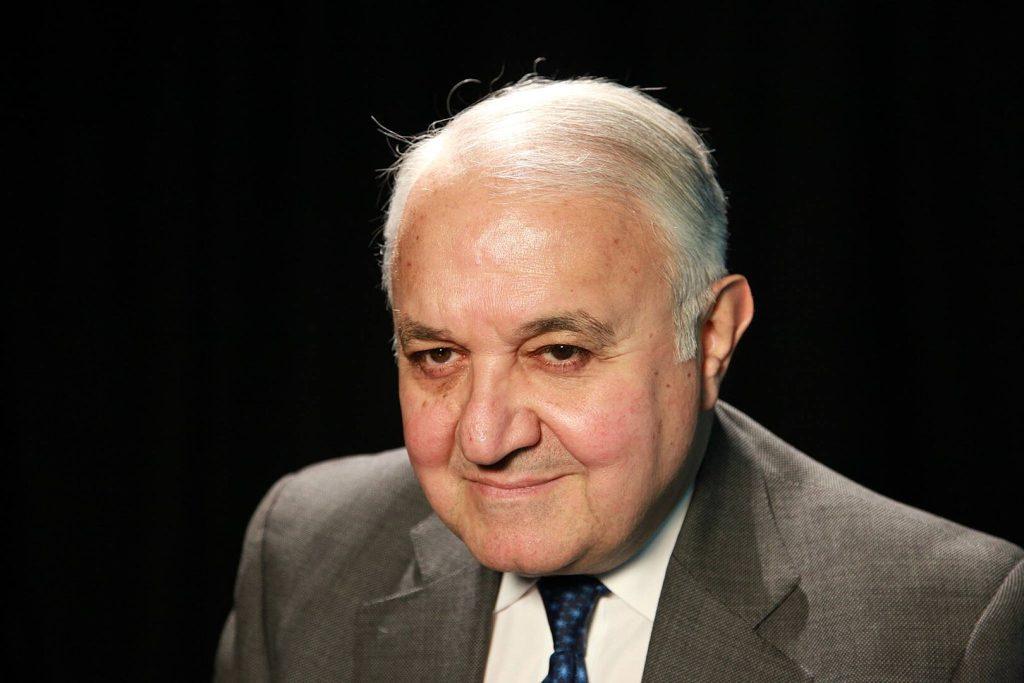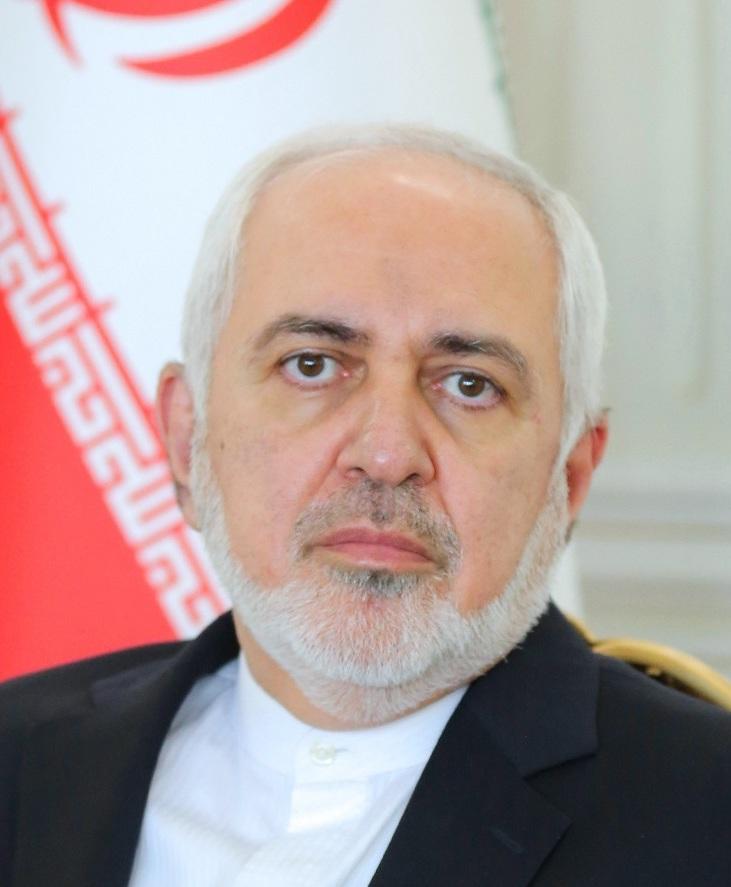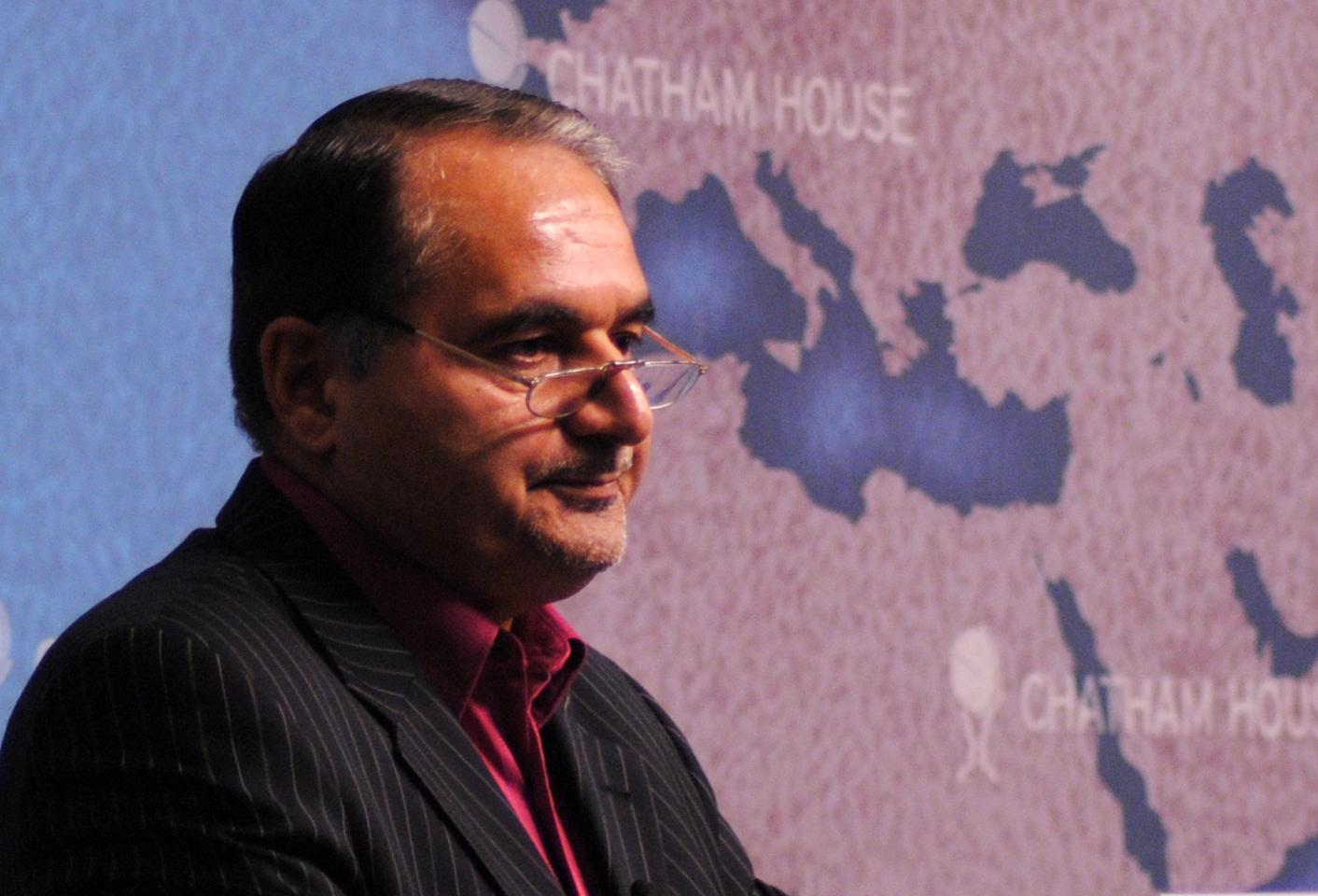Seyed Hossein Mousavian, a “Middle East Security and Nuclear Policy Specialist at the Program on Science and Global Security” at Princeton University, has sought to manipulate media coverage of his invitation to a U.S. Strategic Command (STRATCOM) conference in mid-August.
[B]eing a ‘wanted’ man is part of [Mousavian’s] cover for operating inside America.
Adrian Calamel
On August 30, Mousavian, a former ambassador for the Islamic Republic of Iran to Germany, contacted Focus on Western Islamism (FWI) to speak about his appearance at the conference, downplaying his regime ties. After the initial conversation, he tried to pressure FWI into retroactively considering his comments to be off-the-record, suggesting that FWI misattribute the source of an unverifiable claim to another person.
Politicians, activists and journalists criticized the decision to invite Mousavian to STRATCOM, with journalists noting his long history of close involvement with the regime in Tehran. After the U.S. killing of designated-terrorist Qasem Soleimani in 2020, for instance, Mousavian appeared to praise the IRGC leader and attended his funeral. More recently, and widely reported by Western media, in an interview for an Iranian documentary, Mousavian smiled as he spoke enthusiastically about the Iranian regime’s threats to America’s then-Iran envoy, Brian Hook, for the U.S. killing of Soleimani.
During his keynote address at the U.S. Strategic Command symposium, Mousavian faulted the United States for a failed Middle East and blamed America for Iran’s aggressive stance. “Iran and the U.S. might still have good relations, could be friend, not false,[sic] if the U.S. had not [been] overwhelmed by its great power ambitions,” he said.

Mehrdad Khonsari, a former Iranian diplomat who is now a prominent opposition leader living in the UK, told FWI that Mousavian used his opportunity at STRATCOM to “enhance his credentials,” noting that, “Indeed, the crux of his message contained nothing more than how the U.S. had got everything wrong for the past 70 years! His pontifications said nothing about the numerous heinous acts committed by the regime he has worked for either at home or abroad, falsely alleging that the anti-U.S. positions advocated by the ‘Deep State’ in Iran has the support of the Iranian nation – i.e., a brutally suppressed population that have visibly flouted and de-legitimized the regime’s values and policies.”
A spokesperson for U.S. Strategic Command told FWI, “We were aware of Mr. Mousavian’s previous position within the Iranian government and believe that, in the context of the Deterrence Symposium, we would have benefited from that insight into an opposing viewpoint. The views expressed in the panels and keynotes are not the position of or endorsed by U.S. Strategic Command.”
In response to his presence at STRATCOM, FWI asked Mousavian if he would denounce the “mission and goals” of the Islamic Republic of Iran and confirm that he is in no way working with or for the government of Iran.
An initial written response from Mousavian declared that his work “is just an [sic] academic work and I have nothing to do with the US or the Iranian or any other government.” Mousavian told FWI that he “retired from the Iranian foreign ministry 13 years ago and since then I have not been engaged with any government, including the government of Iran.”
However, in a surprise subsequent phone call to FWI, Mousavian went on to explain that he rarely gives interviews, but he now wanted to talk. When asked why he agreed to an interview on regime-controlled television about Brian Hook and the killing of Soleimani, he contradictorily declared he gives interviews to whoever asks.
During the conversation with an FWI journalist, Mousavian expressed dismay over a Washington Free Beacon article on his presence at the STRATCOM conference. He then offered an explicitly off-the-record detail – which FWI is bound not to repeat – but asked FWI to attribute the claim to “another professor at Princeton.” He did not provide a name for a professor. Mousavian refused to comment on the behavior or ideology of the Islamic Republic, arguing he is just an academic who promotes peace.
In a second phone conversation initiated by FWI, Mousavian sought to defend his attendance at Soleimani’s funeral in Iran, saying that he went only to see the size of the crowd.
He went on vehemently to defend the Persian interview about Soleimani in which he apparently gloated at the threats being made against Brian Hook. Mousavian told FWI that his comments, which he confirmed were recorded while he was in Iran and aired in January 2022, had been taken out of context in the documentary. He said he could not provide a full transcript to prove this allegation.
At the end of the second call with FWI, Mousavian demanded that FWI retroactively consider all his previous comments to be off-the-record. FWI did not agree to any such stipulation before or during these phone conversations.
Mousavian served as Iran’s ambassador to Germany from 1990 to 1997. While he was in this post, the Iranian regime arranged the murder of four Iranian dissidents in Berlin (the “Mykonos restaurant assassinations”). A German court convicted an Iranian intelligence officer and three Lebanese men for the killings.
As ambassador, however, Mousavian initially dismissed the charges as a “joke” and said “the judges are sure to vote in Iran’s favor.” After the convictions, the German government asked for Mousavian’s removal, and he returned to Tehran.
An Iranian political and security analyst who goes by Hossein Azadi told FWI, “Mousavian was in close connection and collaboration with the Islamic Republic’s Ministry of Intelligence and Security (MOIS) since the 1990s when he was the regime ambassador in Germany.”
On his return to Tehran, Mousavian served in various foreign policy roles for the regime, including “nuclear negotiations.” Mousavian’s own biography at Princeton openly lists a number of these positions, and discloses that he worked as “Vice President of the Center for Strategic Research for International Affairs [CSR] (2005-2009).” CSR’s website in turn says it has the “heavy responsibility not only within the country but in the Islamic world to preserve and reinforce the Islamic Republic of Iran and Islamic values.”
The circumstances under which Mousavian arrived in the U.S. and secured a visa in 2009 remain shrouded in mystery. Nonetheless, despite media and political unease, he has served as a faculty member at Princeton since 2009, and has maintained an influential role in U.S. military circles since his arrival in Princeton.
Mousavian and his supporters argue that he himself is a victim of the Iranian government. In 2007, a Tehran court reportedly acquitted Mousavian on treason and espionage charges but banned him from diplomatic positions. Nonetheless, supporters of Mousavian point to his arrest and apparent diplomatic stripping as proof that Mousavian is no friend of the Islamic Republic.
During his opening remarks at STRATCOM, Mousavian pointedly said, “Actually, as a matter of respect she [the emcee] did not want to add that I was arrested in 2007, put in jail, accused of espionage, and ultimately they forced me to retire. And banned me on any diplomatic posts in Iran.” Mousavian did not mention his acquittal.
[Mousavian] believes in, and is completely tied to, the system of the Islamic Republic and Iran.
Iranian Foreign Minister Javad Zarif,
In fact, not only did Iran reportedly acquit Mousavian, but following Mousavian’s legal troubles, Iran’s foreign minister declared Mousavian was working for the regime abroad. In 2016, seven years into Mousavian’s position at Princeton, Javad Zarif, gave an interview in which he declared that Mousavian “believes in, and is completely tied to, the system of the Islamic Republic and Iran,” adding, “in the U.S., Europe, and in international conferences, Mousavian beautifully defends the interests of the Islamic Republic.”

A dozen regime-run and regime-friendly media outlets, meanwhile, frequently reprint Mousavian’s “academic” articles and report on his conference speeches discussing American-Iranian politics and matters of nuclear policy.
“Under the Raisi presidency Mousavian will claim he cannot travel back to Tehran because he was sentenced to 11-months on a corruption charge in 2022. However, being a “wanted” man is part of his cover for operating inside America,” says Adrian Calamel, an analyst specializing in the Middle East and Islamism in the West. Calamel further opined, “We must remember Ayatollah Khamenei is the ultimate authority and Mousavian has been an extremely loyal servant, his fate rests in the supreme leader’s hands and not some official selected by Khamenei.”
The Chair and Ranking Member of the House and Senate Armed Services Committees, Congressman Mike Rogers (R-AL) and Senator Roger Wicker (R-MS), sent a joint letter to STRATCOM demanding to know why they had invited an “Iranian propagandist” to speak.
They called the decision “profoundly ill-advised” and declared: “The decision to invite Mousavian to address its Deterrence Symposium calls into question the judgement of any personnel involved in such a decision, and leads us to question whether the command is appropriately focused on meeting the rapidly growing strategic threats to the United States and its allies.”
“In 2008, MOIS built a fake case for Mousavian to send him to the United States. Mousavian is tasked to influence U.S. foreign policy in favor of the Islamic Republic,” Hossein Azadi told FWI. “He is a pillar for the regime lobby in the U.S.”
Mousavian responded to Western criticism of his appearance at STRATCOM by giving an interview to the regime affiliated Iran Daily, which ran on September 3, under the title, “Iranian Power vs. American Decline.”
Susannah Johnston is FWI’s investigative reporter.
